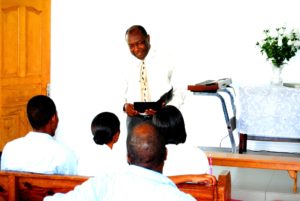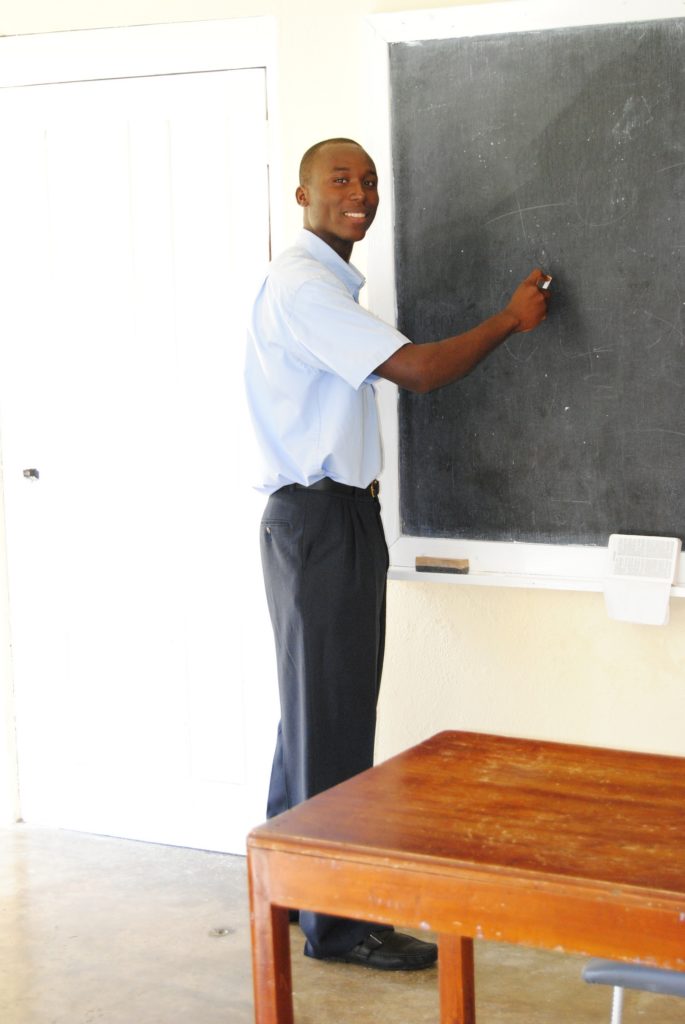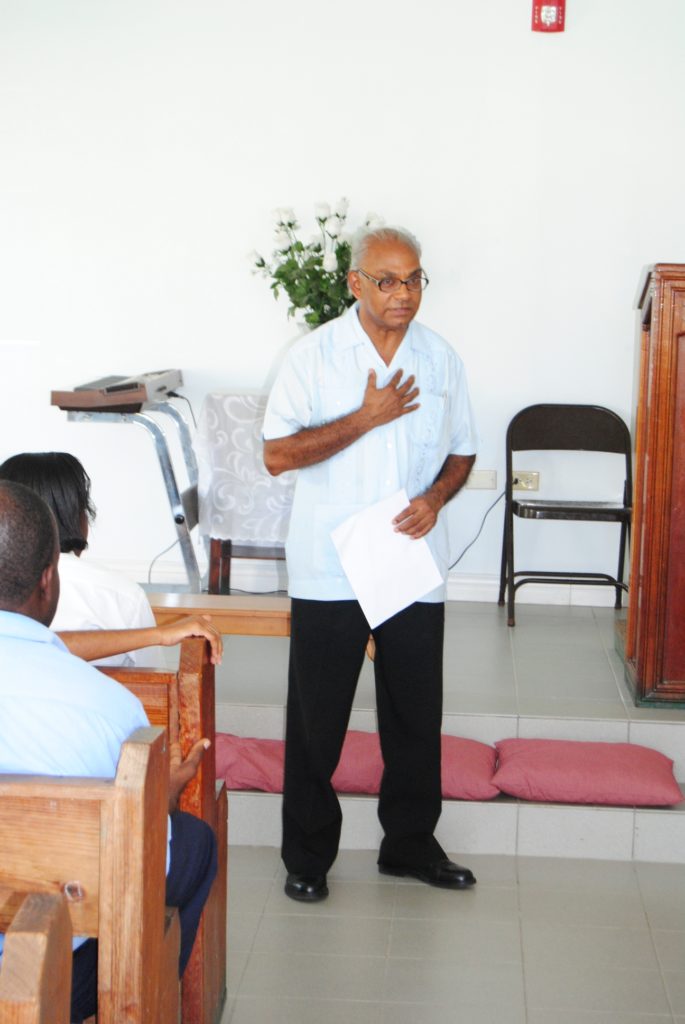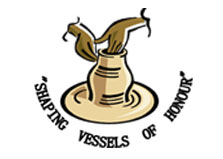CWC’s Vision Statement
The Vision of Caribbean Wesleyan College is to be a leading Christian educational institution engaged in developing a cadre of church leaders who are fully equipped with Biblical, ethical, and professional discipline to serve the Church and Society.
CWC’s PHILOSOPHY
The philosophy of the College embraces a Bible-centered education in which the core of the curriculum is the Bible. Not only is the direct study of the Bible the principal major study, but all other studies are permeated and directed by the eternal truth of God’s Word. We embrace also an education for the whole person directed towards the students’ spiritual, academic, and social development; and an education for living that not only provides training and equipment for service but prepares the person to live adequately and fully, to live a dedicated life for Christ in whatever place he or she may serve.
College Mission Statement
Caribbean Wesleyan College prepares students for holistic Christian service: witnessing, evangelizing, discipling and church governance in the Caribbean and beyond, by exemplary teaching and training in sound biblical Wesleyan-Arminian doctrine and other academic disciplines.
College’s Core Beliefs
The college is Wesleyan-Arminian in doctrine and practice, and holds to the current Discipline of The Wesleyan Holiness Church in the Caribbean. Following are some of the core beliefs:
Section 1: The Bible
The books of the Old and New Testaments constitute the Holy Scriptures. They are the inspired and infallibly written Word of God, fully inerrant in their original manuscripts and superior to all human authority, and containing all things necessary to salvation.
Section 2: God
There is only one living and true God who exists in three persons as Father, Son and Holy Spirit. These persons are of one essential nature, power and eternity.
Section 3: The Father
The Father is the Source of all that exists, whether of matter or Spirit. He, with the Son and the Holy Spirit, made man in His own image.
Section 4: Jesus Christ
Jesus Christ was both Divine and human and died on the Cross for the atonement of man’s sin. He subsequently rose from the dead, ascended to heaven and will return in power and glory to judge all men.
Section 5: The Holy Spirit
The Holy Spirit proceeds from the Father and the Son and is of one substance with the Father and the Son, very and eternally God. He actively works in the believer producing holiness and empowering him for life, mission and service.
Section 6: Works of Grace
Regeneration and Entire Sanctification are two essential works of grace for the salvation of sinful man. In regeneration the repentant sinner is cleansed of acquired sin as he trusts in the atoning work of Christ, while at Entire Sanctification the heart of the believer is cleansed from the state or condition of inbred sin. In both instances the Holy Spirit is the cleansing agent.
Section 7: The Church
The Church is both universal and local and is established to preach the Word of God and to administer the sacraments of Baptism and the Lord’s Supper.
Section 8: The Dead, saved and lost
The dead, saved and lost, will be raised at the Last Day; the saved, to everlasting life, and the lost, to eternal damnation.
Institutional Goals
Closely related to and growing out of the College Mission Statement are fundamental goals for the institution. In order to fulfill the mission, the College is committed to preparing students who:
- Seek to follow the will of the Lord Jesus Christ in their lives.
- Are grounded in biblical truth and Christian experience.
- Possess basic knowledge in the humanities, natural and social sciences.
- Understand and use the cardinal Christian principles in the promotion of spiritual, physical, and social growth.
- Are capable of directing others.
- Understand and meet spiritual, ethical, legal, and social responsibilities in life.
- Perform as contributing members of religious, professional, civic, and social groups.
- Are capable of functioning as Christian workers in the beginning positions of their selected majors.
- Maintain a careful balance between spiritual and social growth and development and academic achievement.
Personal Responsibility
Students must accept responsibility for their own education by being alert to all that is happening in college life. A large part of this is constant attention to the general notice board, library, classroom, dormitory and office spaces where notices may be placed, and gatherings where notices are announced.

